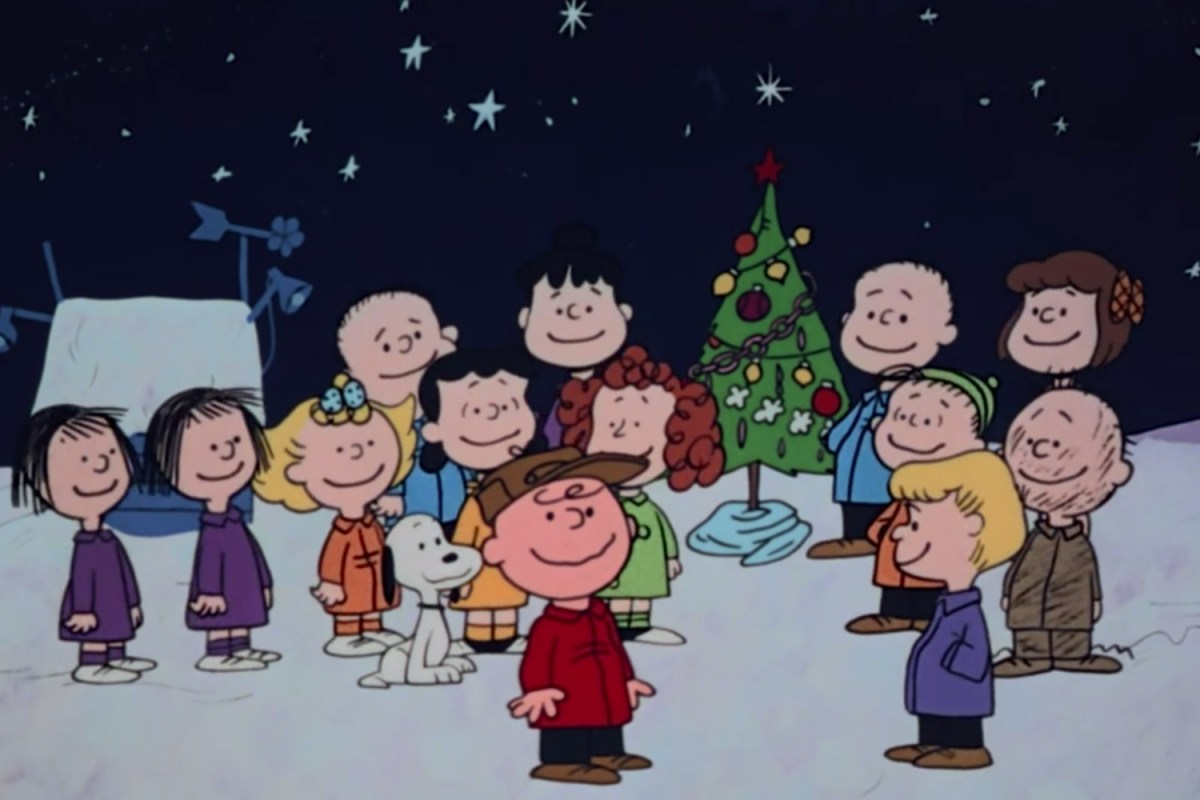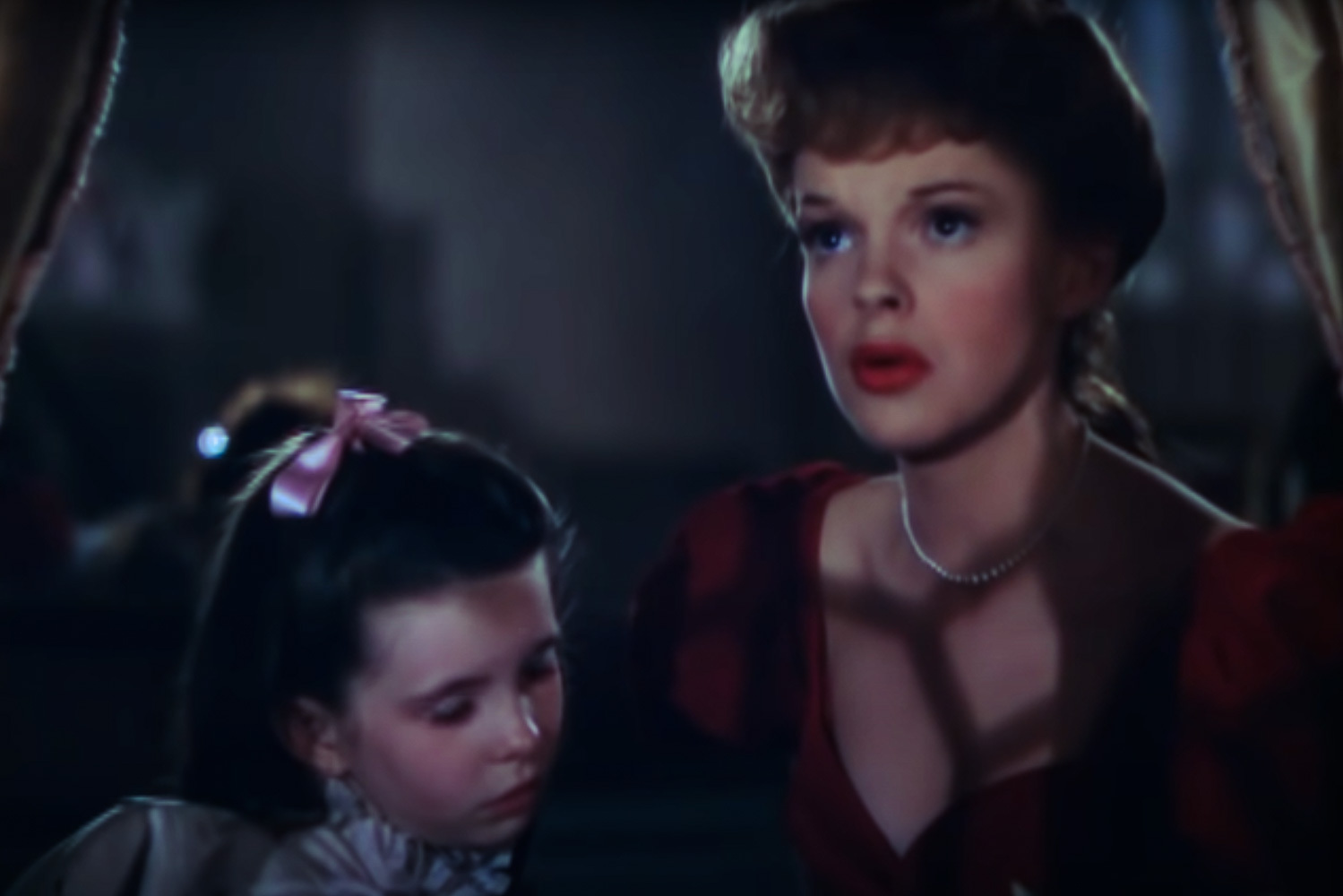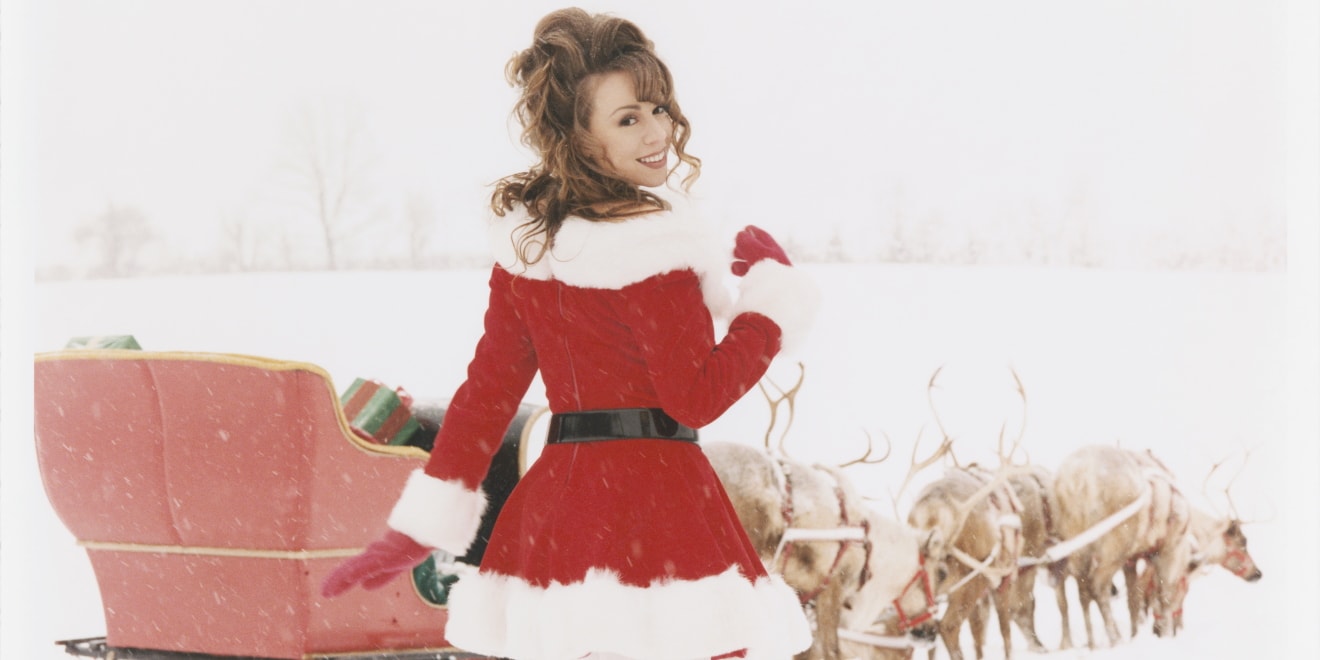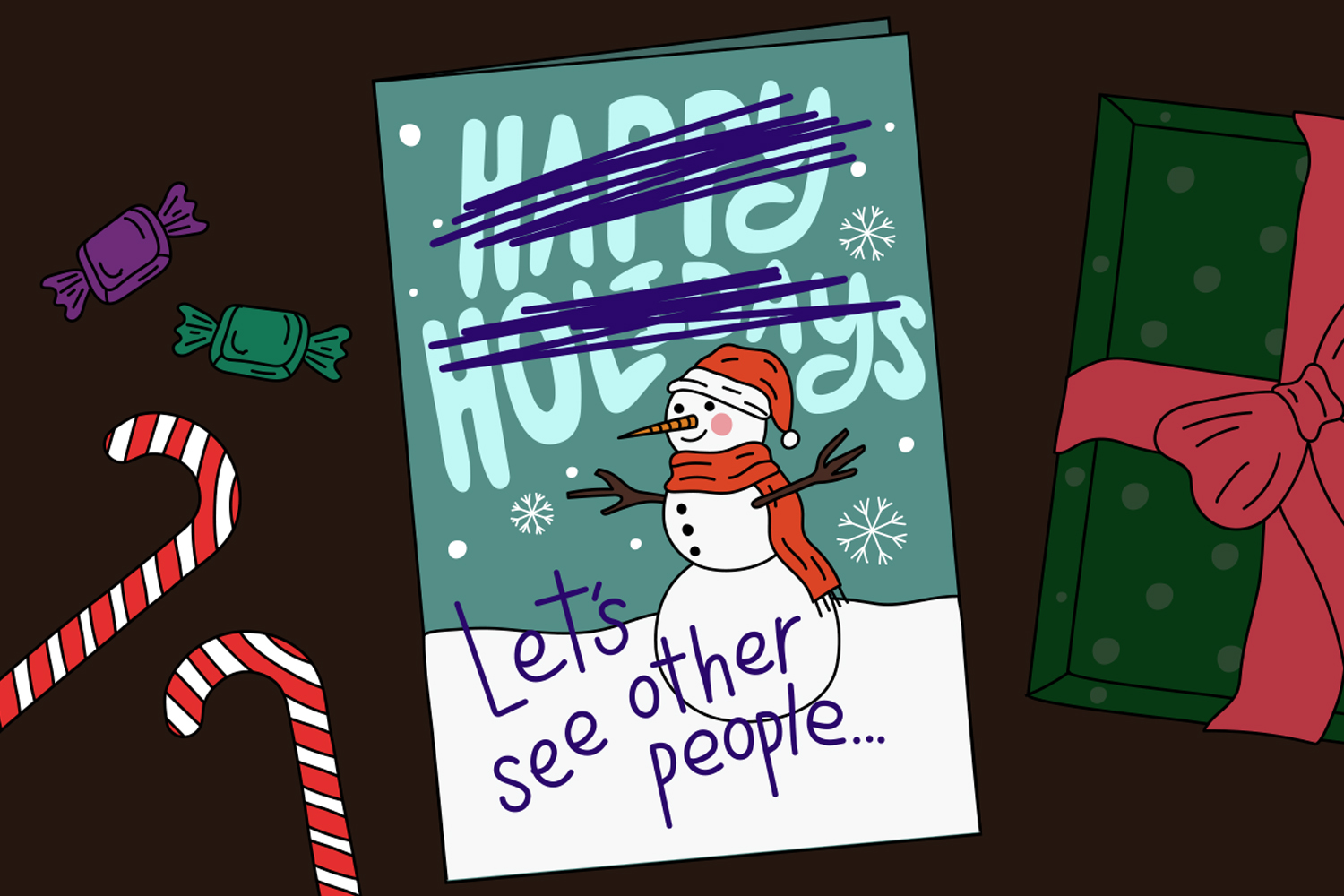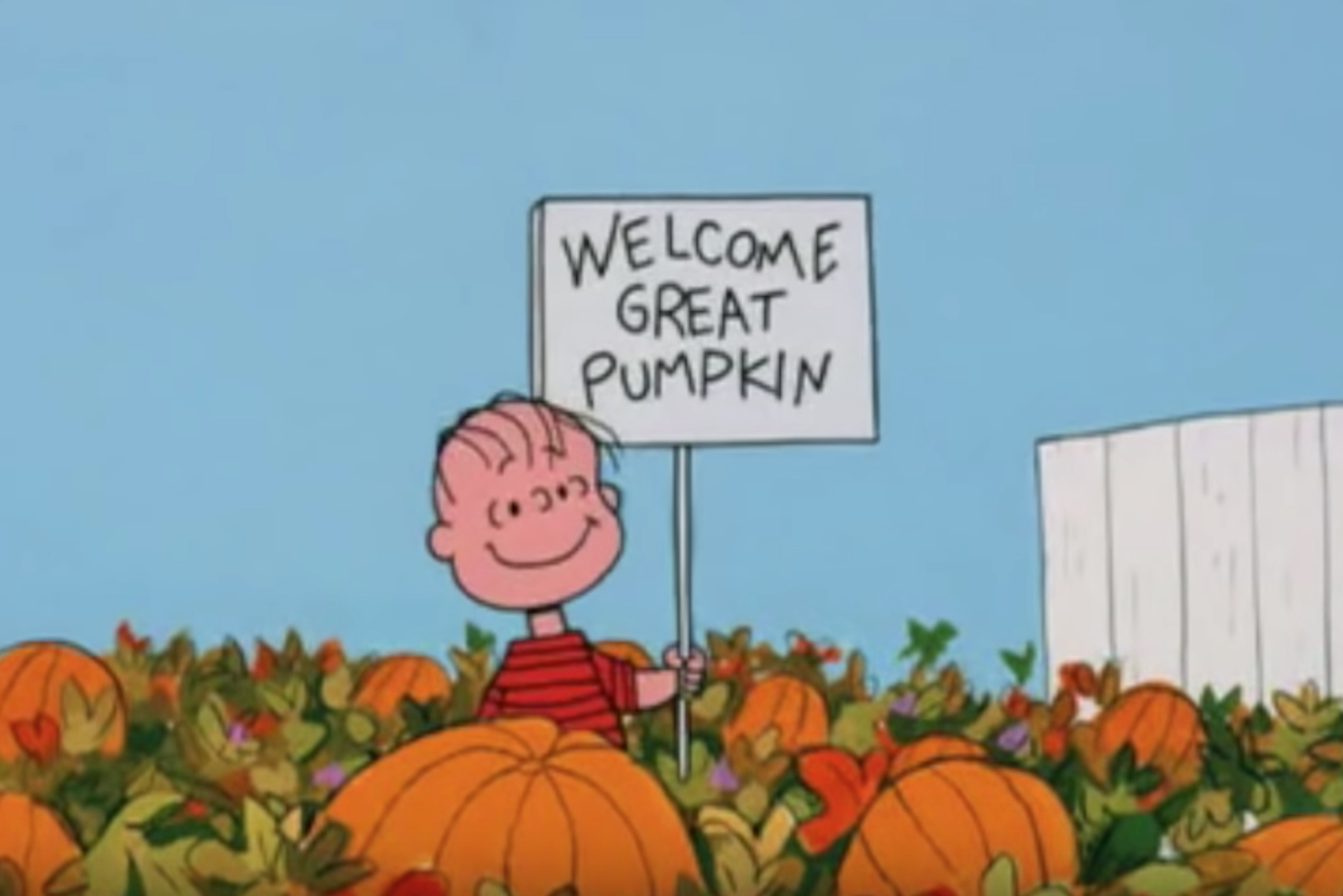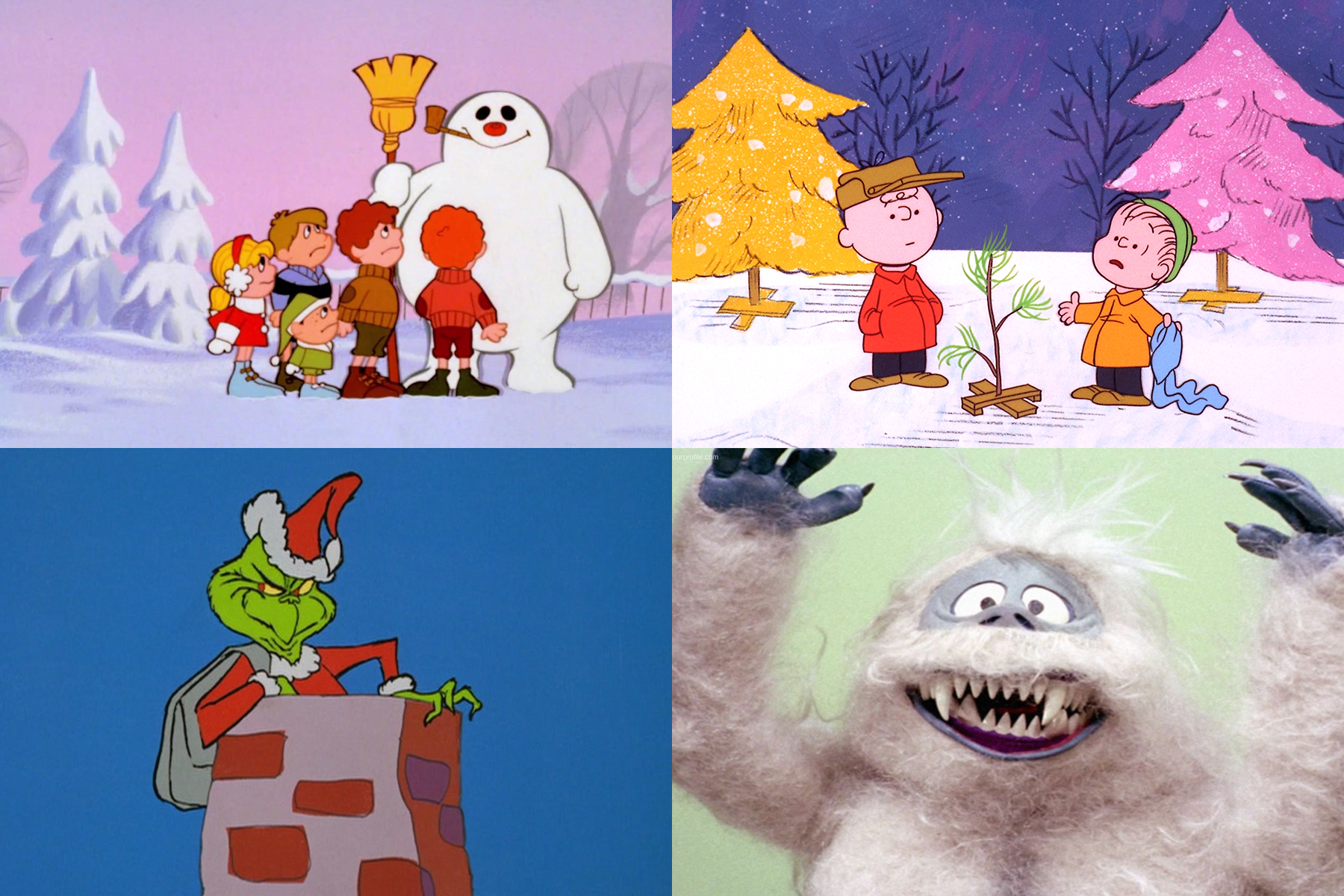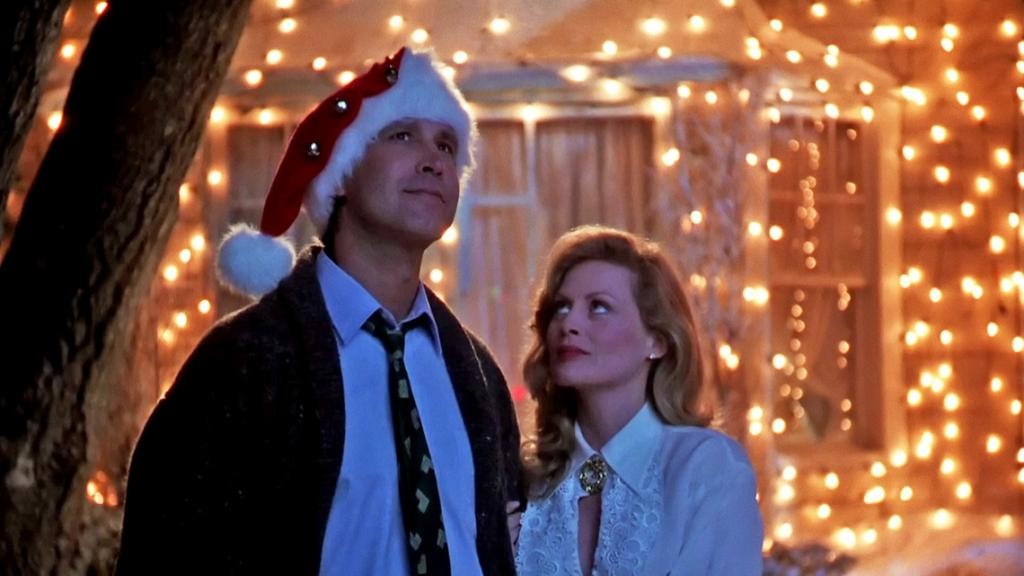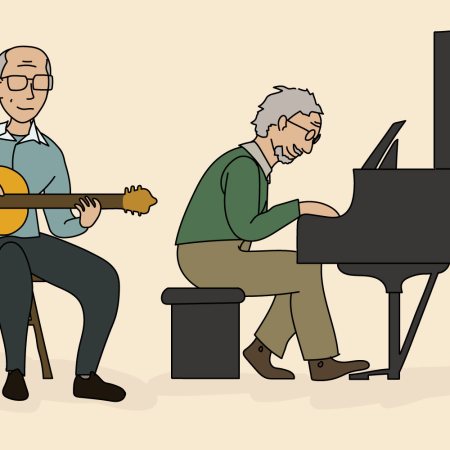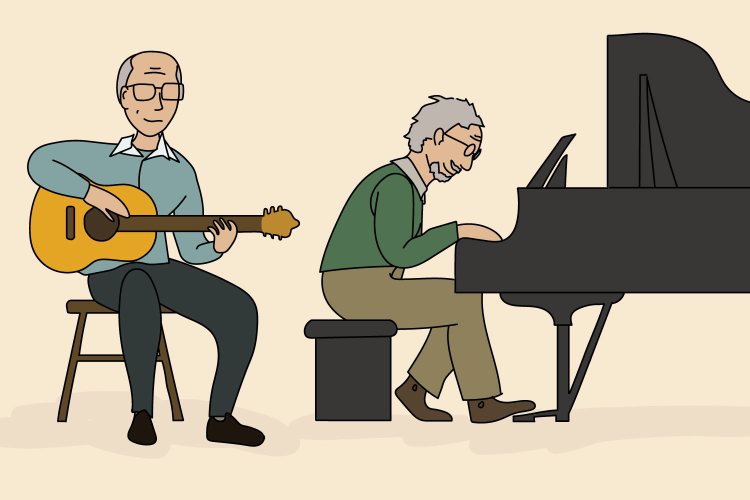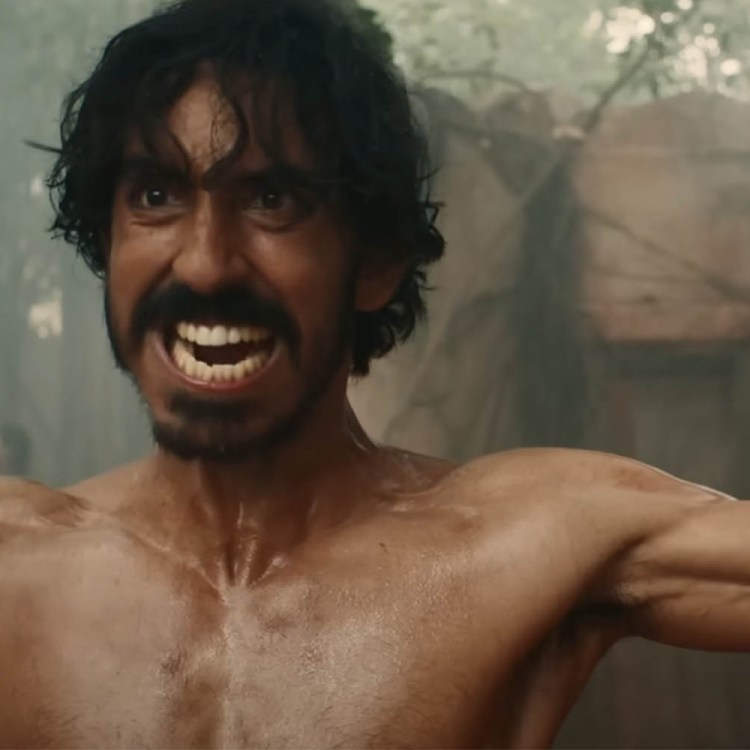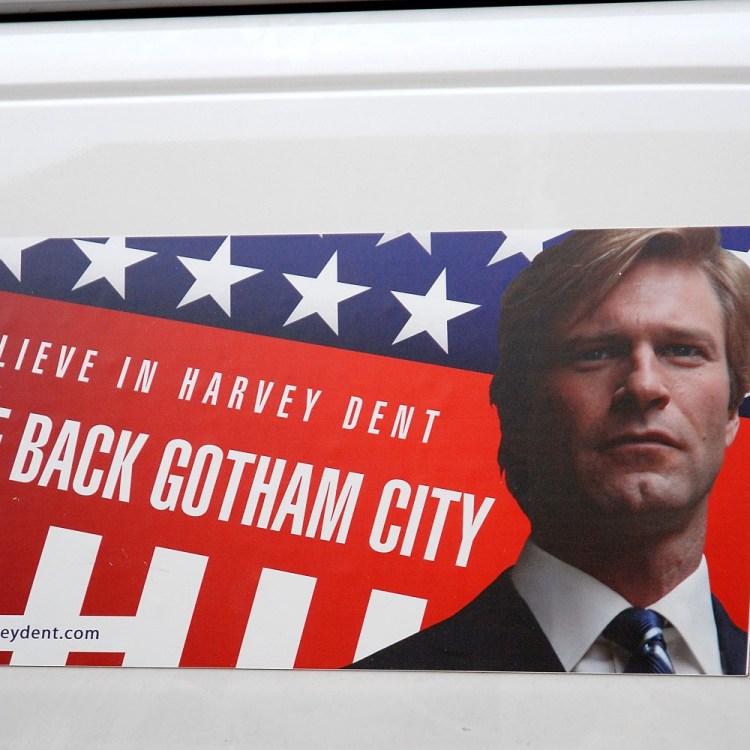According to one of the many oft-quoted lines in the modern holiday classic Elf, the best way to spread Christmas cheer is singing loud for all to hear. It is also, for some reason, one of the best ways to reduce me to tears.
I’m not generally a big movie crier. Personally, I prefer to save my irrational tears for drunk crying on bathroom floors or weeping quietly on the subway. But give me a bunch of characters in a Christmas movie coming together to sing in unison at a climactic point in the film, and the tears flow forth.
This trope is a relatively common one, appearing in a handful of notable Christmas classics. It’s present in Elf, when Zooey Deschanel’s character leads some “spontaneous Christmas caroling” in Central Park, but this particular brand of Christmas movie singing has precedent in much older holiday classics like the original How the Grinch Stole Christmas, released in 1966, and the previous year’s A Charlie Brown Christmas.
It’s important to note that the trope I’m talking about — and its ability to melt my cold, icy heart like Kris Kringle serenading the Winter Warlock in Santa Claus Is Comin’ to Town — doesn’t apply to just any singing that happens in a Christmas movie. In fact, it doesn’t even apply to Kris Kringle serenading the Winter Warlock, so forget I just said that. Christmas movies are full of singing; if every musical number in every holiday film from Rankin & Bass to Hallmark drove me to tears, I’d just be a person who’s exceptionally moved by Christmas music.
As it happens, the particular brand of Christmas movie singing I’m talking about and its tear-jerking capacity has much less to do with either the song or the singing than it does the context in which the singing takes place. The songs themselves are often trite Christmas carols with repetitive and sometimes even meaningless lyrics; the singing is almost necessarily of poor quality, performed by a bunch of randomly assembled amateurs. But they are amateurs who have all been moved to sub-par song by the true meaning of Christmas itself, and this is both heartwarming and, in my opinion, very sad.
There are few specific criteria that separate this trope from the rest of the singing that tends to happen in Christmas movies:
1. The singing must take place in a group
No solo acts. Buddy the Elf sing-yelling “I’m in a store and I’m singing,” while spontaneous, does not count.
2. The characters must be aware that they are singing
This rules out most group numbers that take place in your standard musical, in which songs are typically a storytelling device rather than a plot point occurring within the narrative itself. In sad Christmas movie singing as I have defined it, both the audience and the characters are aware that singing is happening. These characters know they’re singing (as does everyone around them), and they’re singing for a reason — usually one that has something to do with Christmas spirit.
3. The singing must be spontaneous
No Christmas pageant scenes or otherwise planned performances count. This kind of singing has to be inspired by a divine act of Christmas Spirit. One exception is the Grinch, in which we’re told the Whos’ Christmas morning salute is an annual occurrence. But while this particular musical display may not technically be spontaneous, the Grinch certainly wasn’t expecting it, and it still comes across as more of a communal outpouring of emotion than a planned performance.
4. The singing occurs around the climax of the film (and often plays an integral role in the resolution)
Not only does the singing exist within the world of the narrative, rather than merely as a structure of the narration, but it often functions as a crucial plot device that drives the resolution (and usually the true meaning of Christmas) home. Singing that takes place in these films often proves to possess magical qualities, making believers out of Christmas cynics and usually saving the holiday in the process, which brings us to …
5. There is a cynical outsider who first resists, then joins in the spontaneous singing
Whether it’s Buddy’s over-worked dad, an ego-bruised Charlie Brown or the Grinch himself, the singing should help a downtrodden cynic see the light.
For context, here are a few notable examples of the trope at work:
Elf (2003)
Who’s singing? Everyone in Central Park, especially — and, it seems, most importantly — Walter Hobbs. We’re led to believe almost anyone watching NY1 also happens to join in.
The song: Santa Claus Is Comin’ to Town
Why? Buddy the Elf’s human love interest Jovie, played by a very blonde Zooey Deschanel, takes a page out of Buddy’s book of elven wisdom and leads a courageous mass Christmas carol in an attempt to raise enough Christmas cheer to get Santa’s sleigh off the ground.
What does this accomplish? A song-fueled resurgence of Christmas cheer helps Santa’s sleigh take flight in a narrow escape from the Central Park Rangers, but only after Buddy’s grouchy workaholic dad embraces the Christmas spirit and joins in.
How the Grinch Stole Christmas (1966)
Who’s singing? Every Who down in Whoville, the tall and the small.
The song: Welcome Christmas (aka Fahoo Fores)
Why? Because that’s what Whos do on Christmas, and despite the Grinch’s best efforts to stop it, Christmas came, just the same.
What does this accomplish? The Whos’ collective outburst of gleeful singing in the face of their stolen holiday causes the Grinch’s small heart to grow three sizes, giving him both the physical and moral fortitude required to save Christmas and join the Whos in celebratory song.
A Charlie Brown Christmas (1965)
Who’s singing? Lucy, Linus, and the rest of the cast of the Christmas pageant, who spent most of the film bullying Charlie Brown.
The song: Hark! The Herald Angels Sing
Why? Unclear, honestly. After giving Charlie Brown’s twig tree a swift makeover, the group breaks into a low hum for no apparent reason. When a bemused Chuck arrives on the scene demanding answers, his bullies simply shout a hearty Christmas greeting at him before breaking into song.
What does this accomplish? Also unclear, and to be honest, this might be the weakest example of the trope (though also maybe the saddest?). The singing itself doesn’t seem to do much other than lead into the credits, and while the transformation of the tree is nothing short of miraculous, it seems to be the result of cartoon magic, rather than song-induced Christmas magic. That said, the gesture appears to win Charlie Brown over, and he ultimately joins in, signaling all has been forgiven and Chuck has now been accepted by his peers — until the next holiday special, of course.
Clearly, the writers who chose to make use of this trope knew it had narrative power, and they had the formula down pat. But what makes it so sad? Why can’t I watch a cast of characters sing together in a spontaneous outpouring of Christmas spirit without weeping? What loose thread of my broken soul does this trope tug on, and why?
As someone who doesn’t do well in groups and often actively resists identifying within a community, my heartrending affection for these onscreen moments of musical bonding has always been a subject of confusion. At some points in my life, I’ve even imagined myself rather Grinch-like. As a depressed college student, I remember peering down from the window of my single dorm room at all my classmates as they invariably flooded the campus green on the first unseasonably warm day of late winter, lying out in shorts and trying to tan under a still-distant sun. Sometimes I’d imagine myself like a kind of springtime Grinch, sneering down at my peers from my lonely perch like, “Those idiots, don’t they know life is meaningless and they should be inside being depressed?”
As Christmas movie screenwriter Karen Schaler told the Washington Post last year, screenwriters know audiences crave the emotions they are denied in real life. Am I drawn to these moments of onscreen togetherness because I identify with the outsider, and crave his ultimate acceptance into the cult of Christmas cheer? Do I weep over these scenes because spontaneous, simultaneous singing requires a level of communion with one’s fellow man I’ve rarely allowed myself?
Interestingly enough, the lonely outsider who eventually joins the spontaneous Christmas caroling in the above examples is always an ultimately sympathetic character — often he’s even the protagonist. We are usually called to identify with him more than his effortlessly blissful fellow carolers. Perhaps, on some level, we are all the cynical outsider desperate to be welcomed into the musical embrace of mass Christmas cheer.
This article was featured in the InsideHook newsletter. Sign up now.
